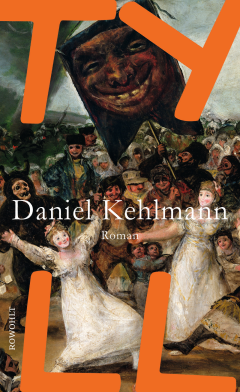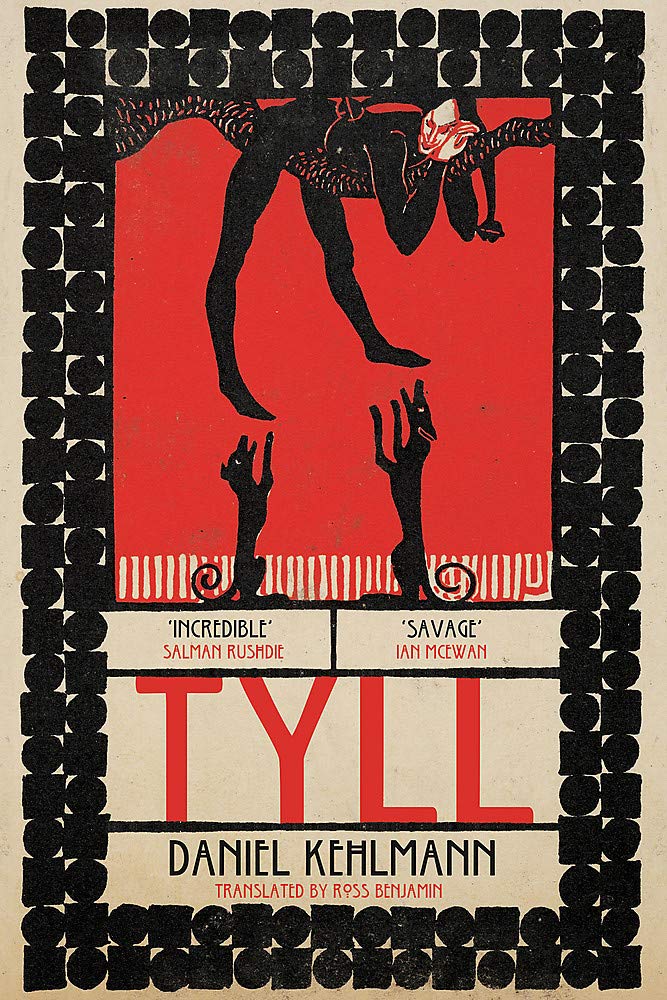The first known appearance of the joker-vagrant Till Eulenspiegel in German literature comes with the publication of an anonymous chapbook in 1510, though his origins in folklore and oral storytelling most likely date back still further. Since then, his incarnations have been multitudinous and varied, including operas, comics, novels and films. To get some idea of the importance of Till Eulenspiegel to German culture, a British audience might find it useful to think of the centrality of Robin Hood to our own myth-making and storytelling, most especially in the protean, elusive nature of such a character, neither wholly hero nor villain, always on the move, forever reinventing himself as befits the time and place.

Daniel Kehlmann’s most recent novel Tyll, translated from the German by Ross Benjamin and shortlisted for the 2020 International Booker Prize, sets the action at the time of the Thirty Years’ War. Tyll Ulenspiegel is born the son of a miller, Claus, who finds himself a miller more by disagreeable luck than critical judgement. Claus Ulenspiegel’s true passion is for ideas – ideas that, with witchfinders roaming the land and a religious war on the horizon, turn out to be dangerous not only for him but for the entire village. Tyll, who from a young age shows a perspicacity and insularity that sets him apart from other children, is quickly forced to rely on his own resources. Brute twists and turns of fate, combined with Tyll’s mercurial and essentially unknowable nature, make for a picaresque narrative of unexpected happenings and unusual daring.
As is usual and ever-delightful with Daniel Kehlmann, the story does not proceed in a straightforward fashion. Instead, we are offered a series of discrete snapshots, shuffled like a deck of cards, dropping us in and out of Tyll’s life and times at irregular, non-linear intervals, so that even as we reach the end there are still gaps that can only be filled by our own imagination. As in a painting by Bruegel, certain figures dart forward to capture our attention, before sloping off into the background, making space for someone else. And the story is as much about the troubled social and political landscape in which it takes place as its eponymous hero. The Thirty Years’ War left many thousands dead, and was responsible for the deaths of millions more through the poverty, displacement, disease and starvation that it inflicted. One of the most powerful effects of the COVID pandemic, for me, has been the way in which it has revealed our residual closeness to events that previously seemed quite distant. Hilary Mantel has been brilliant at evoking the strong political parallels between our own time and the time of the Tudors. In Kehlmann’s hands, history is similarly pliable, similarly present.

Most of all, it is Kehlmann’s deft and original approach to the fantastic that illuminates this novel, that lends it the timeless allure and magical slipperiness of its jester protagonist. The land our little troupe travel through is alive with spirits and goblins, witches and will o’ the wisps, with hunches and premonitions, with gods and monsters that are as much the creatures of a nation’s troubled psyche as of her boundless forests, things only half-seen that still cannot be unseen because we know they are there. Kehlmann’s evocation of a magical landscape is nothing more and nothing less than the conjuring of a time in which magic and religion, alchemy and science mixed freely among the crowds, sowing their own brands of dissent and chaos, of healing and treachery among the people of a world – as continues to be proven – not so very different from our own.
In his refusal to provide answers or pass judgments, Kehlmann proves himself as tricksy and light-fingered as his shadowy hero. Tyll is a distillation of wonderland, a casket of ambiguous treasures. Beware his Midas touch – it may leave you with asses’ ears.